“The universe still holds surprises beyond our imagination,” astrophysicist Shankar Ray said.
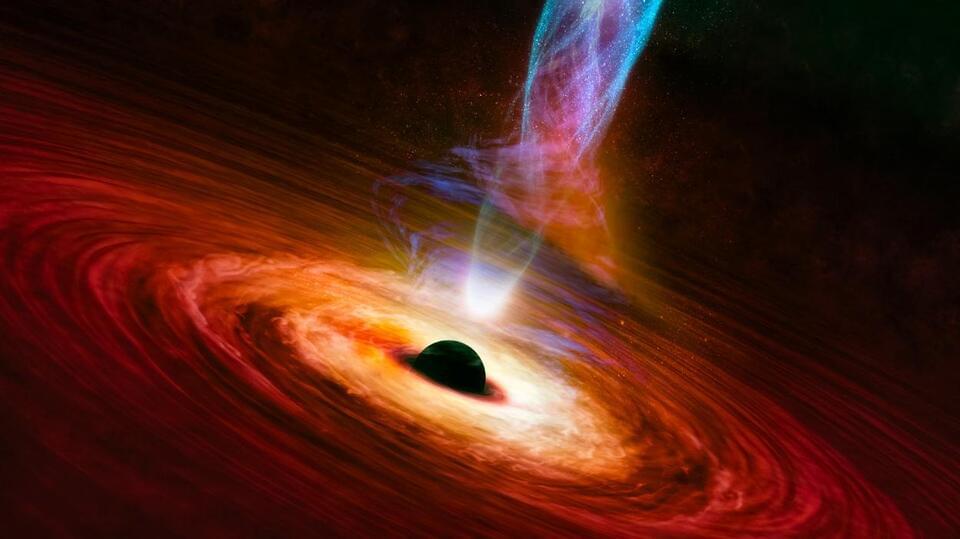

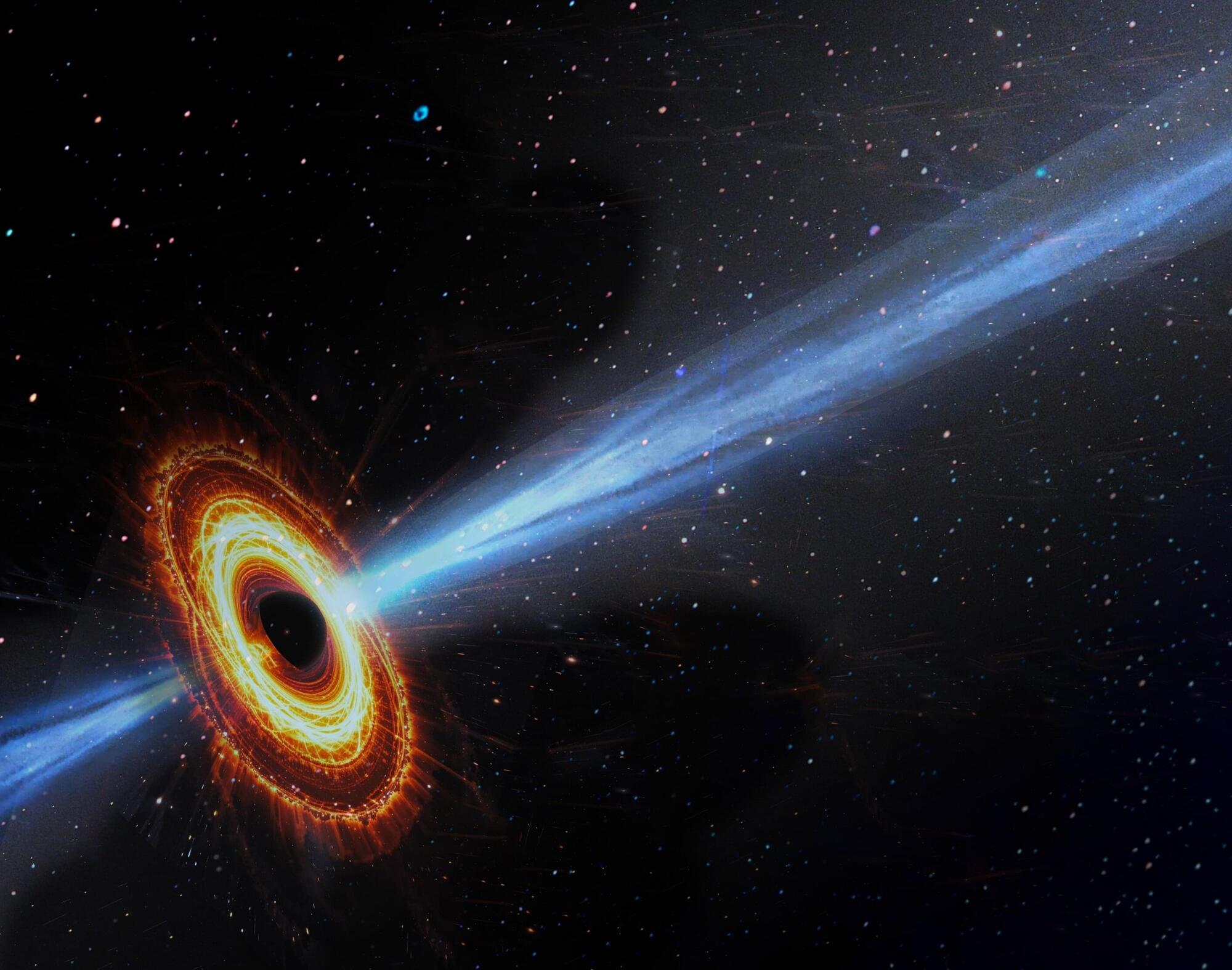
An international team of researchers used multi-wavelength observations of active galactic nuclei to study how black holes launch relativistic jets. The sixteen sources were observed with the Event Horizon Telescope during its first campaign in 2017. The extreme resolution achieved by the Event Horizon Telescope enabled studies of jets closer than ever to the central supermassive black holes of these galaxies.
The team investigated the acceleration and magnetization of the jets by comparing results obtained at various frequencies and angular scales. The work was led by scientists from the MPIfR in Bonn, Germany, and the IAA-CSIC in Granada, Spain, and is now published in Astronomy & Astrophysics.
To assess the accuracy in understanding the evolution of jets in the centers of active galaxies with supermassive black holes, an international research team led by Jan Röder (MPIfR and IAA-CSIC) compared observations made with the Event Horizon Telescope with previous studies using the Very Long Baseline Array and the Global Millimeter VLBI Array, which probe much larger spatial scales.
Where do we come from? Why are we here? These perennial questions have echoed across cultures and epochs, from mythological accounts to scientific inquiries. In The Origins of Us, I explore a unified narrative that transcends classical reductionist models
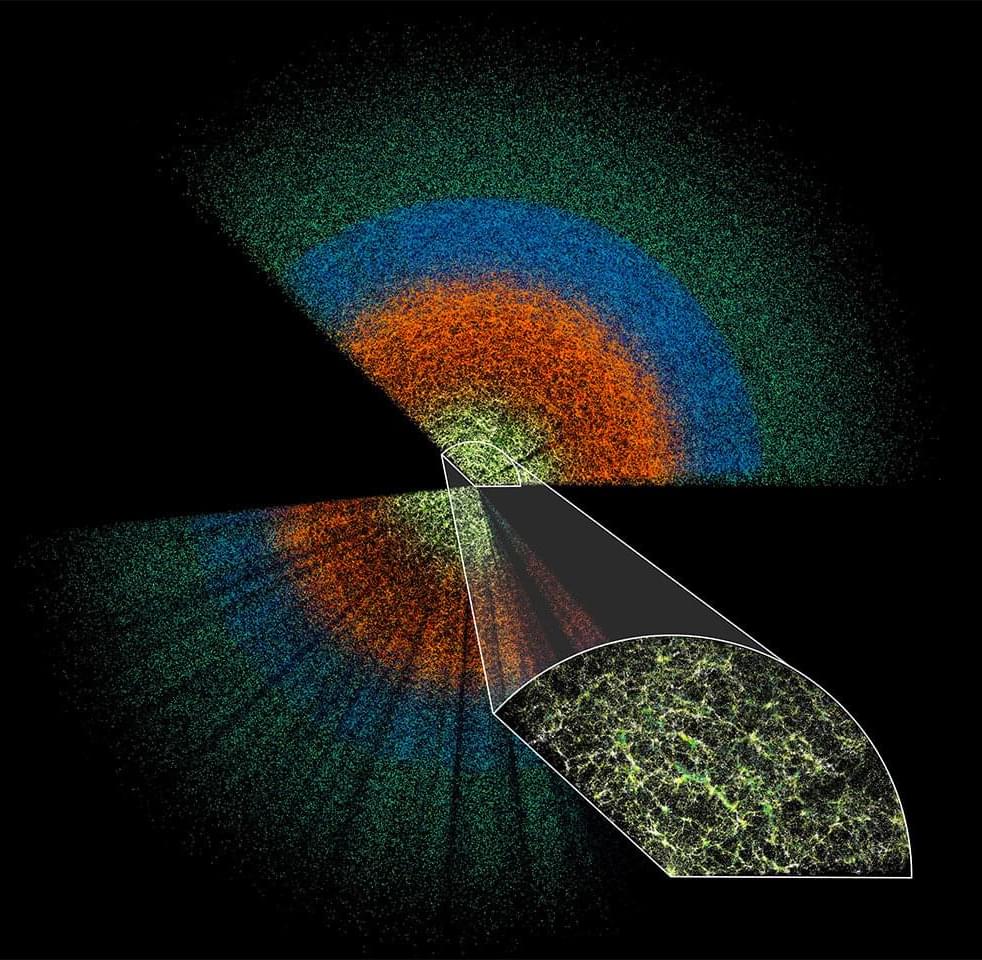
This week, ALMA researchers reported the discovery of oxygen in the most distant known galaxy. Geologists believe unusual structures in rock in the desert regions of Namibia, Oman and Saudia Arabia may be evidence of an unknown microorganism. And a group of physicists may have generated a tiny charge of electricity using the Earth’s rotational energy. But the biggest story by far is the second release of data from the DESI survey of the universe, which could upend the standard model:
An emerging generation of cosmological surveys launched this week with the second release of data from the Dark Energy Spectroscopic Instrument at Kitt Peak National Observatory in Arizona, which is mapping an unprecedentedly huge number of galaxies spanning 11 billion years of cosmic history in order to better understand dark energy.
Astronomers have known for many decades that the universe is expanding; in the 1990s, the first image of the cosmic microwave background—the echo of the big bang—revealed that this expansion is accelerating for unknown reasons. Astronomers call this expansion “dark energy,” which translates to “we don’t understand what this energy is.”
Joscha Bach is a cognitive scientist focusing on cognitive architectures, consciousness, models of mental representation, emotion, motivation and sociality.
Patreon: / curtjaimungal.
Crypto: https://tinyurl.com/cryptoTOE
PayPal: https://tinyurl.com/paypalTOE
Twitter: / toewithcurt.
Discord Invite: / discord.
iTunes: https://podcasts.apple.com/ca/podcast… https://pdora.co/33b9lfP Spotify: https://open.spotify.com/show/4gL14b9… Subreddit r/TheoriesOfEverything: / theoriesofeverything Merch: https://tinyurl.com/TOEmerch 0:00:00 Introduction 0:00:17 Bach’s work ethic / daily routine 0:01:35 What is your definition of truth? 0:04:41 Nature’s substratum is a “quantum graph”? 0:06:25 Mathematics as the descriptor of all language 0:13:52 Why is constructivist mathematics “real”? What’s the definition of “real”? 0:17:06 What does it mean to “exist”? Does “pi” exist? 0:20:14 The mystery of something vs. nothing. Existence is the default. 0:21:11 Bach’s model vs. the multiverse 0:26:51 Is the universe deterministic 0:28:23 What determines the initial conditions, as well as the rules? 0:30:55 What is time? Is time fundamental? 0:34:21 What’s the optimal algorithm for finding truth? 0:40:40 Are the fundamental laws of physics ultimately “simple”? 0:50:17 The relationship between art and the artist’s cost function 0:54:02 Ideas are stories, being directed by intuitions 0:58:00 Society has a minimal role in training your intuitions 0:59:24 Why does art benefit from a repressive government? 1:04:01 A market case for civil rights 1:06:40 Fascism vs communism 1:10:50 Bach’s “control / attention / reflective recall” model 1:13:32 What’s more fundamental… Consciousness or attention? 1:16:02 The Chinese Room Experiment 1:25:22 Is understanding predicated on consciousness? 1:26:22 Integrated Information Theory of consciousness (IIT) 1:30:15 Donald Hoffman’s theory of consciousness 1:32:40 Douglas Hofstadter’s “strange loop” theory of consciousness 1:34:10 Holonomic Brain theory of consciousness 1:34:42 Daniel Dennett’s theory of consciousness 1:36:57 Sensorimotor theory of consciousness (embodied cognition) 1:44:39 What is intelligence? 1:45:08 Intelligence vs. consciousness 1:46:36 Where does Free Will come into play, in Bach’s model? 1:48:46 The opposite of free will can lead to, or feel like, addiction 1:51:48 Changing your identity to effectively live forever 1:59:13 Depersonalization disorder as a result of conceiving of your “self” as illusory 2:02:25 Dealing with a fear of loss of control 2:05:00 What about heart and conscience? 2:07:28 How to test / falsify Bach’s model of consciousness 2:13:46 How has Bach’s model changed in the past few years? 2:14:41 Why Bach doesn’t practice Lucid Dreaming anymore 2:15:33 Dreams and GAN’s (a machine learning framework) 2:18:08 If dreams are for helping us learn, why don’t we consciously remember our dreams 2:19:58 Are dreams “real”? Is all of reality a dream? 2:20:39 How do you practically change your experience to be most positive / helpful? 2:23:56 What’s more important than survival? What’s worth dying for? 2:28:27 Bach’s identity 2:29:44 Is there anything objectively wrong with hating humanity? 2:30:31 Practical Platonism 2:33:00 What “God” is 2:36:24 Gods are as real as you, Bach claims 2:37:44 What “prayer” is, and why it works 2:41:06 Our society has lost its future and thus our culture 2:43:24 What does Bach disagree with Jordan Peterson about? 2:47:16 The millennials are the first generation that’s authoritarian since WW2 2:48:31 Bach’s views on the “social justice” movement 2:51:29 Universal Basic Income as an answer to social inequality, or General Artificial Intelligence? 2:57:39 Nested hierarchy of “I“s (the conflicts within ourselves) 2:59:22 In the USA, innovation is “cheating” (for the most part) 3:02:27 Activists are usually operating on false information 3:03:04 Bach’s Marxist roots and lessons to his former self 3:08:45 BONUS BIT: On societies problems.
Pandora: https://pdora.co/33b9lfP
Spotify: https://open.spotify.com/show/4gL14b9…
Subreddit r/TheoriesOfEverything: / theoriesofeverything.
Merch: https://tinyurl.com/TOEmerch.
0:00:00 Introduction.
0:00:17 Bach’s work ethic / daily routine.
0:01:35 What is your definition of truth?
0:04:41 Nature’s substratum is a \.
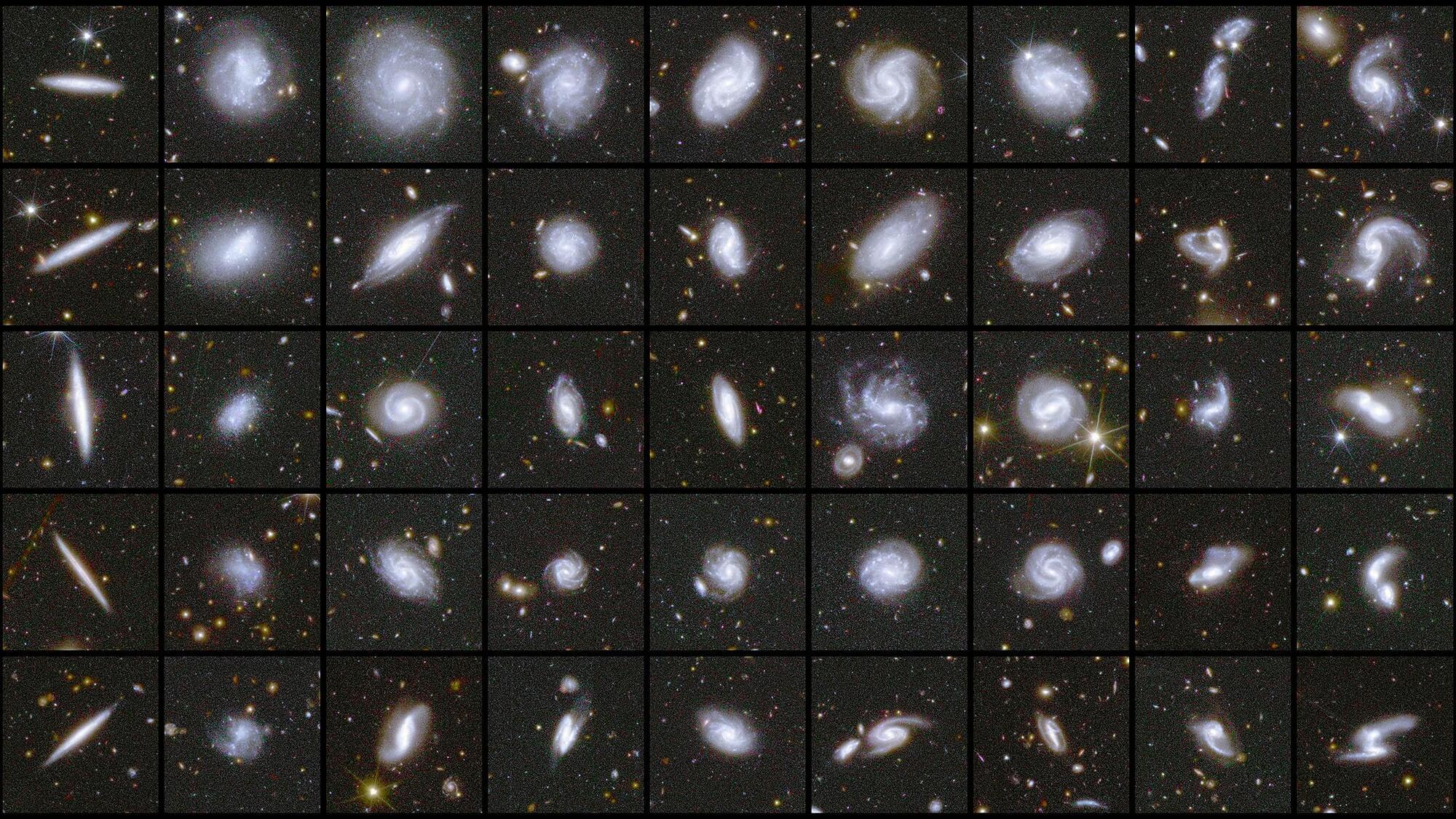
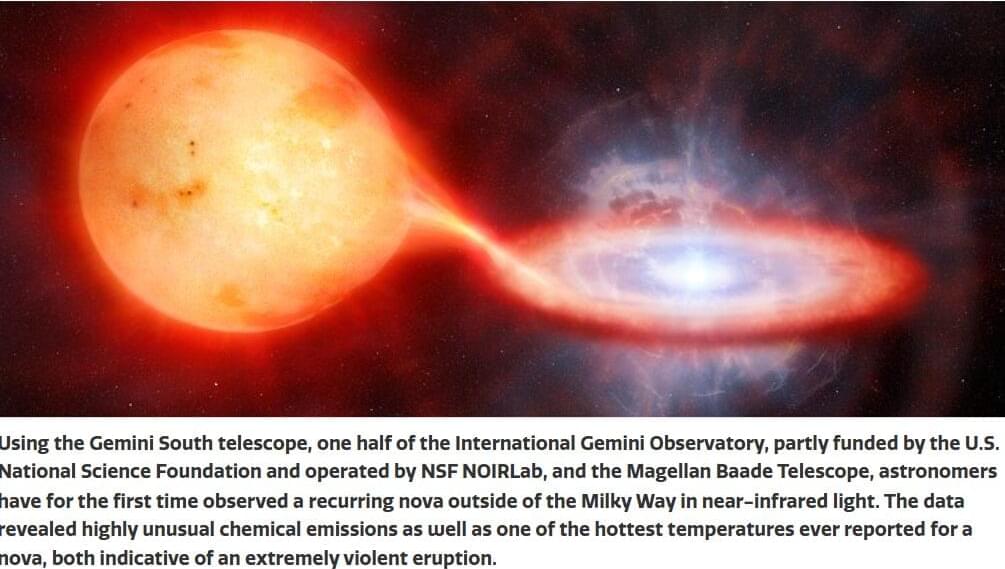
Astronomers uncover extremely hot and violent eruption from first ever near-infrared analysis of a recurrent nova outside of the Milky Way Galaxy. Using the Gemini South telescope, one half of the International Gemini Observatory, partly funded by the U.S. National Science Foundation and operated by NSF NOIRLab, and the Magellan Baade Telescope, astronomers have for the first time observed a recurring nova outside of the Milky Way in near-infrared light. The data revealed highly unusual chemical emissions as well as one of the hottest temperatures ever reported for a nova, both indicative of an extremely violent eruption.
Nova explosions occur in binary star systems in which a white dwarf — the dense remnant of a dead star — continually siphons stellar material from a nearby companion star. As the outer atmosphere of the companion gathers onto the surface of the white dwarf it reaches temperatures hot enough to spark an eruption.
Almost all novae discovered to-date have been observed to erupt only once. But a few have been observed to erupt more than once, and are classified as recurrent novae. The span between eruptions for these novae can vary from as little as one year to many decades [1].
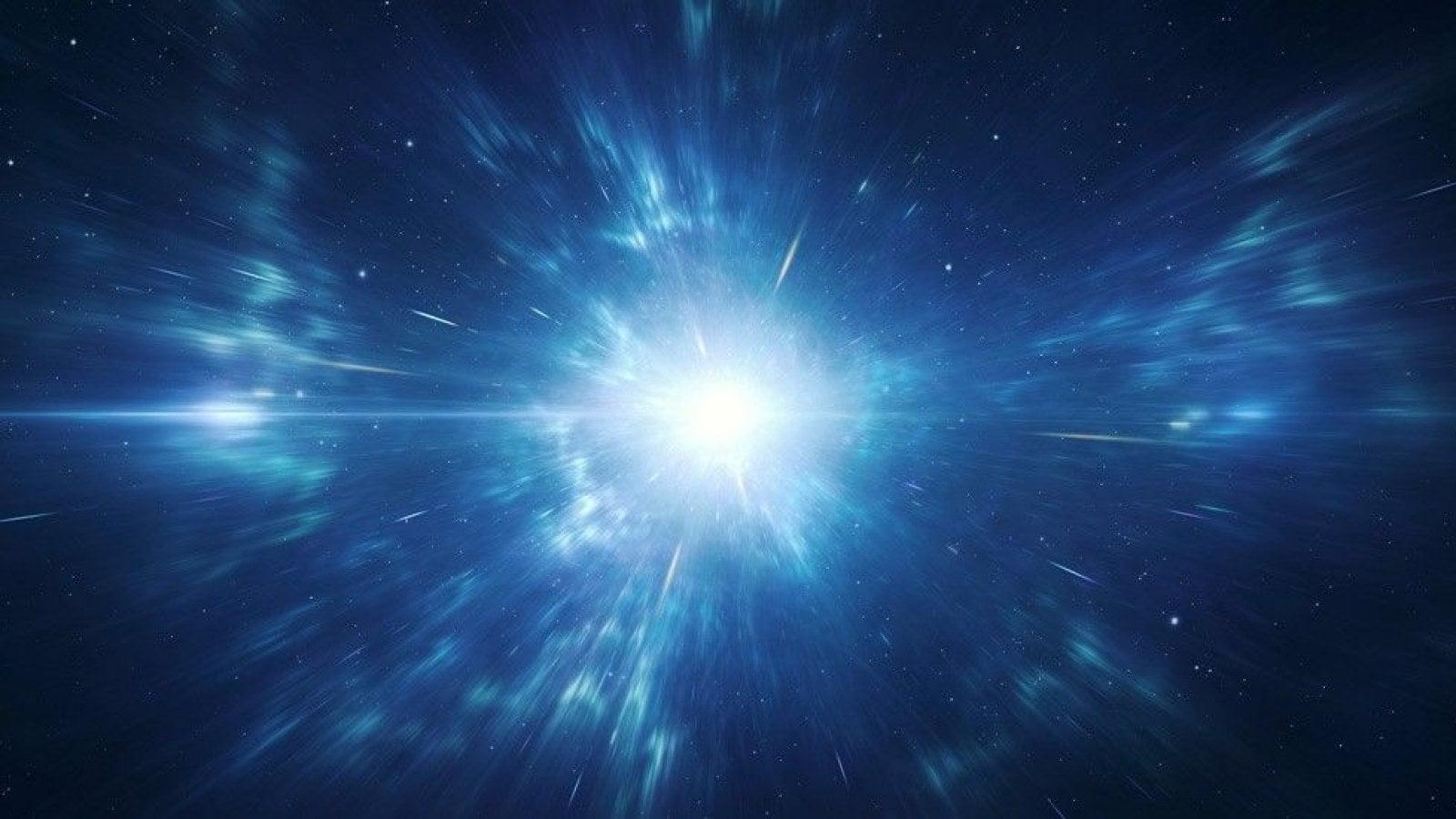
In the 1930s, researchers first noticed oddities in how galaxies moved, suggesting something invisible exerted gravitational pull. Decades later, studies of the cosmic microwave background —the lingering radiation from the universe’s birth—confirmed dark matter’s importance in shaping cosmic evolution.
A pivotal study by the Planck Collaboration in 2018 revealed that dark matter makes up roughly 27% of the universe’s total energy. By comparison, ordinary matter—the stuff of planets, stars, and us—accounts for only 5%.
Scientists have spent decades trying to understand what dark matter might be. Supersymmetry, a popular theory in particle physics, proposes a “partner” particle for every known particle, potentially offering clues about dark matter’s identity.
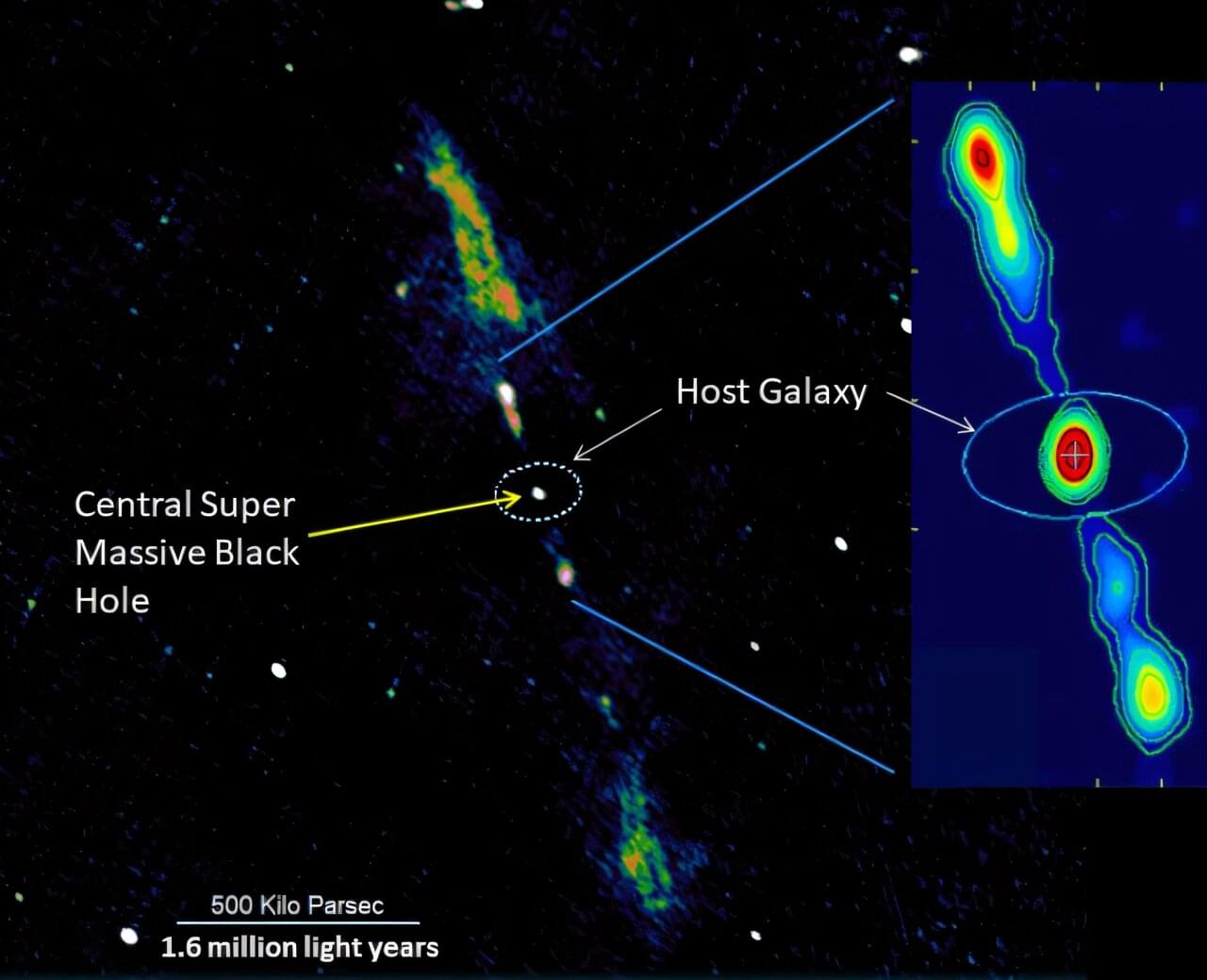
A terrifying glimpse at one potential fate of our Milky Way galaxy has come to light thanks to the discovery of a cosmic anomaly that challenges our understanding of the universe.
An international team of astronomers led by CHRIST University, Bangalore, found that a massive spiral galaxy almost 1 billion light-years away from Earth harbors a supermassive black hole billions of times the sun’s mass which is powering colossal radio jets stretching 6 million light-years across.
That is one of the largest known for any spiral galaxy and upends conventional wisdom of galaxy evolution, because such powerful jets are almost exclusively found in elliptical galaxies, not spirals.
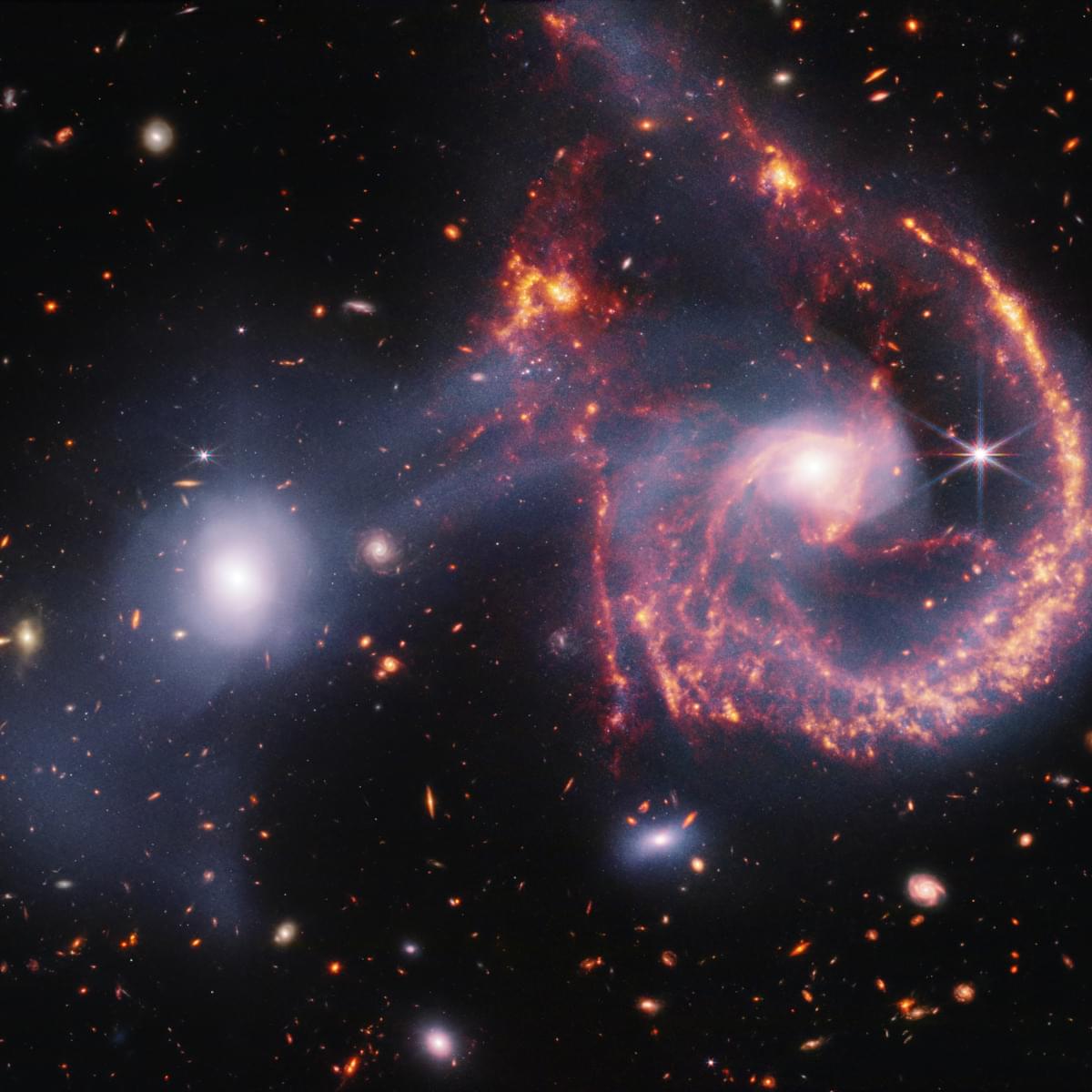
The universe looks a little different in mid-infrared light, a longer wavelength captured by the James Webb Space Telescope.
Don’t be distracted by distant stars and galaxies that look like multi-colored candies! Instead draw your attention to the “messy” blue “scoop.” This is one of two galaxies in Arp 107. The blue orb to its left is interreacting with it, making up its other “half.”
What’s remarkable about this image is that the bright diffraction spikes in the larger galaxy on the right are from its active supermassive black hole.
See a “bridge” that connects the pair in Webb’s near-infrared light observations.
Arp 107, a pair of interacting galaxies, shines brightly in high-resolution infrared light. A collision, which occurred hundreds of millions ago, created a tenuous bridge of gas and dust that connects the two galaxies, and started a new wave of star formation that NASA’s James Webb Space Telescope captures clearly.